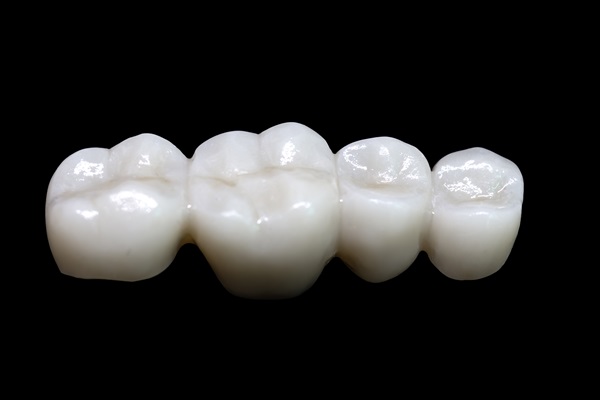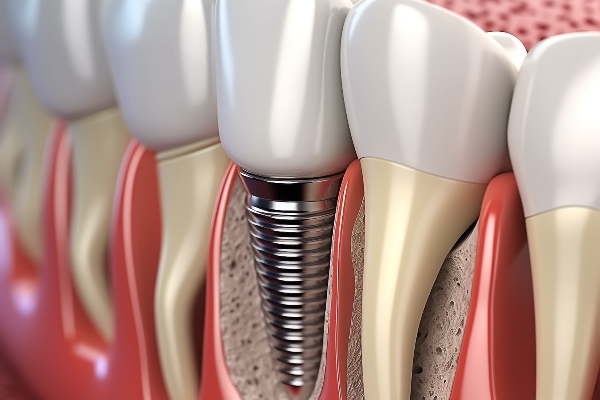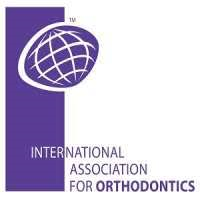What To Do About a Loose Dental Crown

Teeth that are severely decayed or fractured may benefit from dental crowns, which cover the damaged portions of the teeth, protecting them and restoring their functionality. A dental crown is crafted to fit the remaining portion of the tooth exactly and permanently bond to it. However, crowns are not perfect, and while they are usually very durable, they can come loose for a number of reasons. If the loose crown causes extreme pain or sensitivity, or the tooth is in danger of falling out, it could be considered a dental emergency.
5 steps to take when a crown is loose
Even if it is not an emergency, you should see a dentist for a loose crown at the earliest appointment available. It may be possible to recement the existing crown. If not, the dentist will have to order a new one for you and make a temporary replacement to protect the tooth until the new one is ready. While you are waiting for your appointment, take the following steps.
1. Do not touch or wiggle the crown
As long as the abutments under dental crowns remain intact, it should be possible to replace them. However, wiggling the crown may cause damage to the underlying tooth. It could also cause the crown to fall out completely, which you should avoid if possible.
2. Protect the crown
You can temporarily stabilize the crown so it does not wiggle around and cause further damage by using dental cement. This is available for purchase over the counter, and you can apply it yourself. Before placing the temporary dental cement, use gauze to dry the tooth and the crown. Place it carefully and then allow the adhesive to set by biting down gently but firmly on a piece of gauze for five minutes. This can only stabilize your tooth for a few hours, so ideally, you should see the dentist before then.
3. Control the pain
A loose crown may cause pain or sensitivity. You can keep this under control by applying a topical numbing agent to the affected area or taking over-the-counter pain relievers, such as acetaminophen and ibuprofen. Make sure to follow the instructions on the package.
4. Be careful eating or chewing
If you have to eat anything prior to your dental appointment to fix your loose crown, be careful to chew on the opposite side from the affected area. Do not eat anything too sticky or crunchy.
5. Know what to do if the crown falls out completely
Be careful to avoid swallowing the crown. If it is not broken, save it and bring it with you to your appointment. The dentist can evaluate the crown and determine whether it can be put back in place.
Understanding the causes of a loose crown
There are many reasons a crown can become loose. Familiarizing yourself with these common causes can help you adjust your daily habits so you can improve the overall lifespan of a dental crown.
Bruxism
Chronic teeth-grinding or clenching is a condition known as bruxism. According to the Academy of General Dentistry, one in three people have this dental condition and many may not even know it. While a person can clench or grind their teeth at any time, many people only do it at night in their sleep. They may experience the side effects, such as a headache or jaw pain, without realizing the true underlying cause.
Habitually grinding your teeth can damage a crown over time, causing it to become loose. Fortunately, there are many treatment options for bruxism, including stress management, therapy, and the use of mouth guards.
Dietary choices
Eating hard, tough, or crunchy foods can put a lot of strain on a crown, especially if these foods are consumed on a regular basis. Candies, chips, seeds, nuts, and whole crunchy fruits or vegetables are some of the worst offenders. Cut your food into manageable pieces and avoid these foods to prevent a crown from loosening over time.
Time
Even with a healthy diet, good lifestyle choices, and proper dental hygiene, most dental crowns do not last forever. With excellent care and the advantage of good overall oral health, crowns can last for decades. However, it is normal for crowns to wear out and become loose after 10 to 15 years.
Conclusion
Dental crowns are built to last for years, but a number of factors can cause them to come loose. It is important to prevent your loose crown from falling out if possible and to see your dentist promptly for repair.
Request an appointment here: https://www.thegalleryofsmiles.com or call Midtown Dental - The Gallery of Smiles at (713) 979-4127 for an appointment in our Houston office.
Check out what others are saying about our dental services on Yelp: Dental Crowns and Dental Bridges in Houston, TX.
Recent Posts
When a dental practitioner recommends a dental crown, it may not be up to the patient. These dental devices are used to treat various conditions that cause a tooth to need serious work. When a crown is required, it usually means that the tooth it covers is too far gone to be useful, but it…
Whether you need a root canal or have decay, your dentist may recommend you get a dental crown. However, you might be wondering what a dental crown is. A crown can restore the appearance and function of your natural tooth. It is a way of saving your tooth, which can be preferable to getting an…
When a filling is insufficient or a tooth is malformed, the dentist may suggest a dental crown to protect, cover, and restore the tooth's structure. While receiving a crown may seem strange or scary, it is a routine and safe process that can strengthen the teeth, extend their life, and restore the natural appearance of…
For patients in need of dental crowns, there are plenty of options available. Two of the most common choices are porcelain crowns and metal crowns (often with a porcelain overlay fused to the metal). Depending on a patient's specific circumstances, one of these crown types may be the preferred option.Metal crowns have the advantage of…










